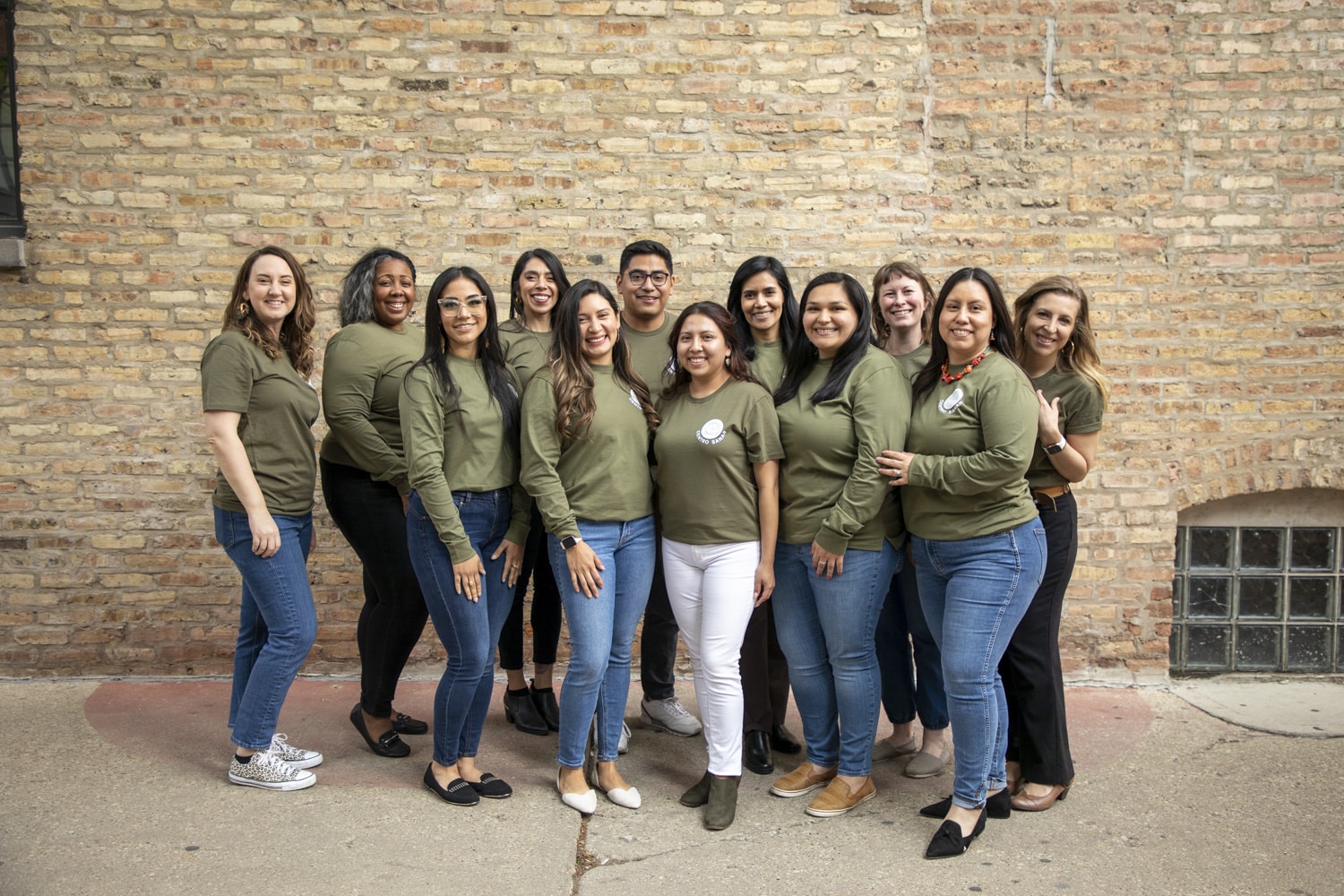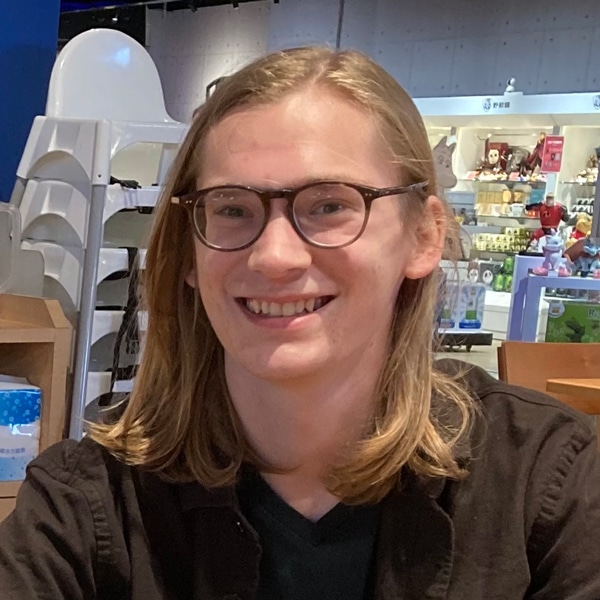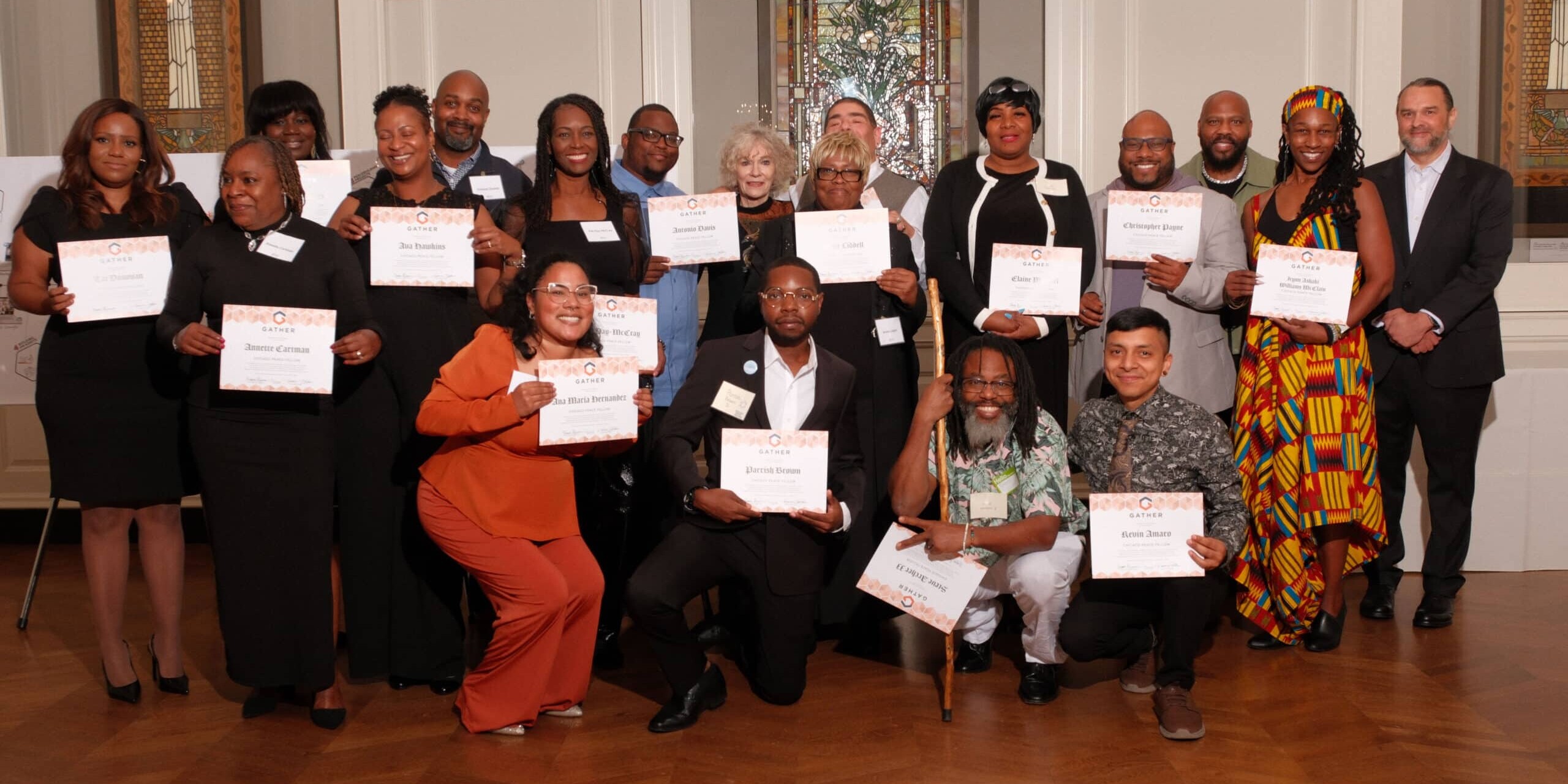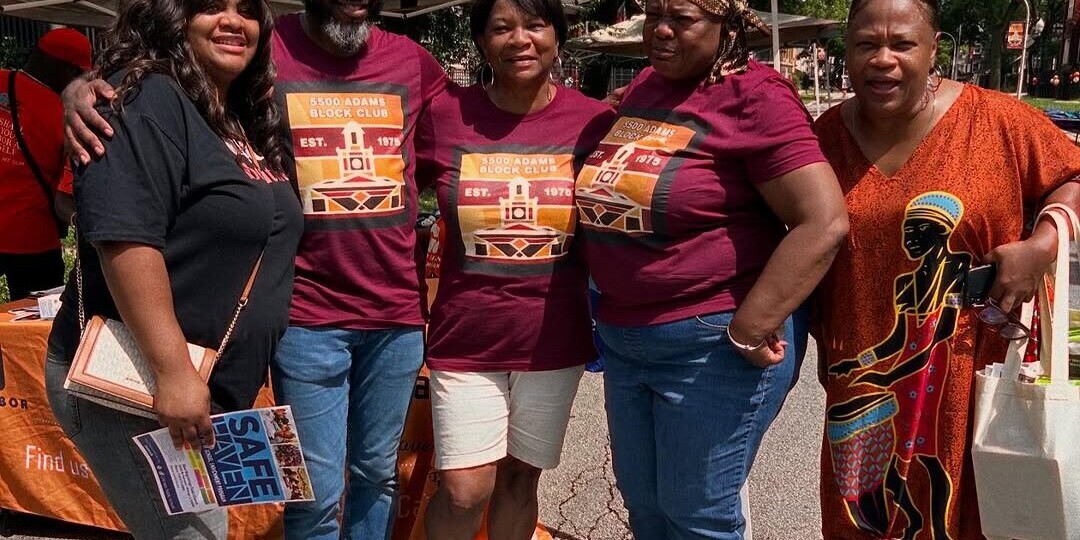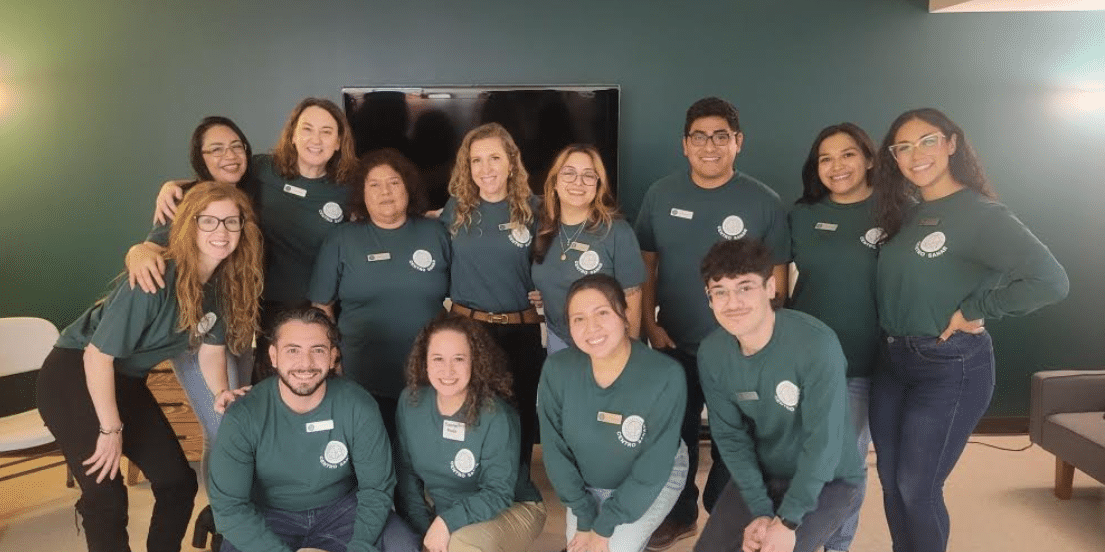In August of 2023, Chicago Beyond, a philanthropic organization that invests in organizations working to ensure that young people and community members are free to live full lives, announced a $1.6 million investment in Centro Sanar.
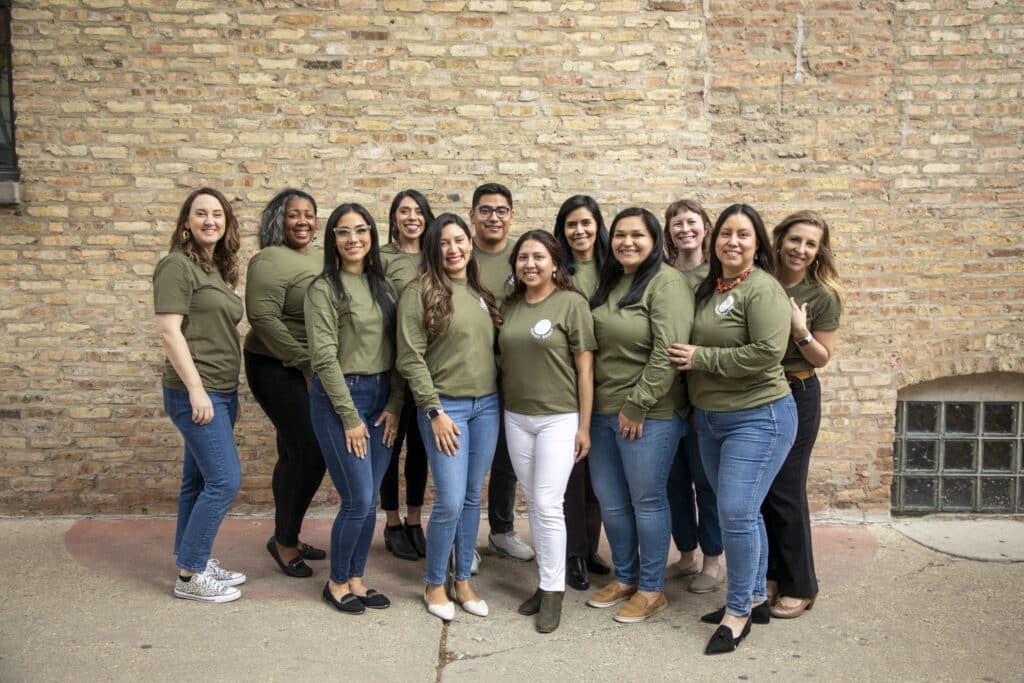
Centro Sanar, co-founded by 2022 Chicago Peace Fellow, Edwin Martinez, provides free mental health services to the southwest communities of Gage Park, Brighton Park, South Lawndale “Little Village,” and Back of the Yards. This funding will help support Centro Sanar’s mission of addressing nationwide mental health service gaps in Latinx communities through a replicable model that acts as an alternative to the current mental health industry.
Chicago Beyond initially identified Edwin and the work Centro Sanar was doing through exploring the value of lived experience in community engagement and mental health services. A Growth Manager at Chicago Beyond found Edwin through an article in The Trace, a media outlet that reports on gun violence. As conversations between Chicago Beyond and Centro Sanar developed, it became clear that Centro Sanar had cultivated deep connections with both community members and organizations that serve the Southwest side. This ultimately resulted in a lasting partnership between the two organizations:
As an organization, Chicago Beyond deeply values Centro Sanar’s founders’ lived experiences and believes that in consultation with their partners and with those that they serve. Centro Sanar is serving the community’s needs, addressing systemic harms, and delivering a lasting impact.
-Lisa Caldeira, Growth Manager at Chicago Beyond
Centro Sanar is made up of social workers and therapists who have around 50 years of collective experience. When asked about the quick expansion of Centro Sanar, Edwin responded: “A lot of our success has been due to the community uplifting our work. We started off as volunteers in March of 2020 under the incubation of the Port Ministries. That provided us with a space to start the work and provide clinical services, which started to blow up in November of that same year when we started to receive funding. Fast forward to May of 2022, we were able to quickly launch a 501(c)(3) due to our relationships with stakeholders who were able to bring on state funding.”
By facilitating the development of lasting relationships between clinicians and community members, Centro Sanar has been able to expand its services rapidly and offer new forms of mental health services to an underserved population.
A Non-Medicalized Approach to Mental Health Care
Centro Sanar takes a non-medicalized approach to mental health care, which the team credits with the success of its programs. Edwin has seen mental health programs that take a medicalized approach fail due to the way their systems were funded and their way of reporting services to the government: “Our clinicians don’t have a fifty patient caseload, they don’t have a specific productivity guideline like in a medicalized system. They don’t have to do thirty five hours of clinical work for billing purposes. They are able to do community-based presentations and different levels of engagement so that they meet with community members when they are not in a state of crisis. This also means word of mouth referrals increase.”
The majority of Centro Sanar’s patients enter their care through word of mouth referrals, which means that neighbors and family members are sharing and promoting mental health care resources and are trusting Centro Sanar’s model of care. Word of mouth referrals also reduce the stigma of seeking out mental health care as friends and family members in the community encourage individuals to seek out preventative care prior to a mental health emergency.
By functioning outside of a medicalized mental health care model, Centro Sanar is also able to extend its mental health services outside of times of crisis. Whereas many medicalized mental health services are designed to tackle mental health emergencies, Centro Sanar expands services to preventative forms of mental health care. When asked what separates Centro Sanar from traditional mental health services, Edwin replied,
Consistency and presence. We’re one of the few organizations that provide free long-term care, consistent care that is not just twelve to twenty four 30-minute sessions over the course of six weeks. We’re doing what community members want, which is consistent and quality care. Even as a small organization we are making sure that we are providing long term service at different clinical modalities that tend to be inaccessible to our population and providing them in the language that they speak. That’s something that is often inaccessible in the current mental health landscape that we are in.
-Edwin Martinez, Executive Director at Centro Sanar
Collaborating to Expand Access to Services
One way that Centro Sanar is tackling the problem of helping underserved populations is by working with other organizations that complement their mental health services. For instance, their partnership with Port Ministries not only provides Centro Sanar with a space to operate from, but also allows for a co-location of services. Port Ministries, run by peer Chicago Peace Fellow Alumni David Gonzalez, offers services that complement Centro Sanar’s such as a free health clinic and an afterschool programs that can assist with child care.
Centro Sanar has also been able to co-locate with PODER, an immigrant integration center that works primarily with Spanish-speaking adults. PODER provides a space for Centro Sanar to operate from and also allows for a co-location of services. PODER offers programs that complement Centro Sanar such as workforce development and immigrant integration services. Offering behavioral health and workforce development with the same space increases the capacities of both organizations by streamlining referrals, access to care, and improving different areas of wellness.

There is no shortage of work for Centro Sanar, they currently have a 10 month waitlist for individual therapy with close to 300 people waiting to receive services. This need is largely amplified by a systemic disinvestment of mental health services for BIPOC communities. As a young organization, the investment from Chicago Beyond will allow Centro Sanar to sustain their work and establish themselves as an organization. The funding provides financial flexibility for Centro Sanar to focus on what they know to be most critical for their organization and their clients. Financial security also allows Centro Sanar independence in establishing itself as an organization and figuring out what is needed in their infrastructure.
Both Chicago Beyond and Centro Sanar are especially excited at the prospect of serving as a blueprint for alternative mental health services in the future. Edwin in particular is hopeful that some aspects of Centro Sanar’s model of care can be extended into the public space, emphasizing that he would like Centro Sanar to, “give an example of an organization that is being creative, that is being innovative, and that is researching its work. This has always been a passion of mine, how can a public mental health clinic adapt this model to be implemented in its work.”
Central to both Centro Sanar’s growth and to its future is its ability to weave in partners to its mission and strengthen the community fabric. Lisa of Chicago Beyond emphasizes: “The team at Centro Sanar have carefully crafted combinations of ways to engage community members toward healing, not just towards dealing with instances of loss and grief, but towards a deep intergenerational wellness. For communities that have experienced generational harms and systemic oppression, receiving care that is long-term, free of charge, and accessible — culturally, linguistically and physically — leads to individual and familial healing, which in turn leads to community healing.”
